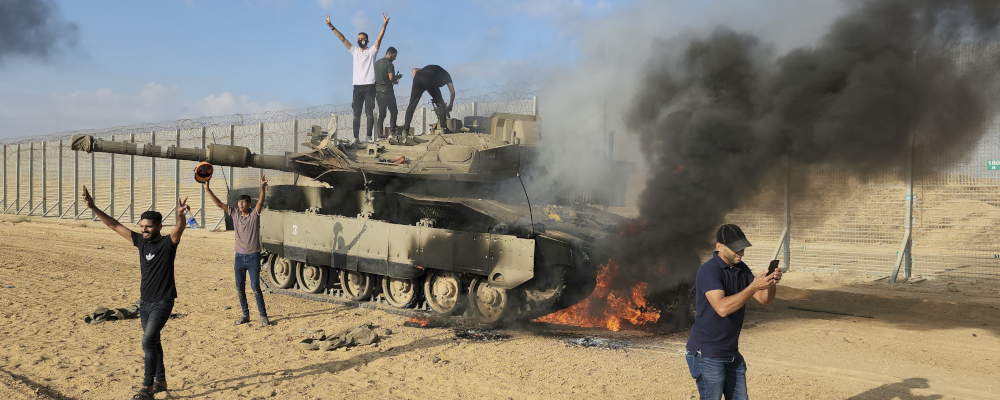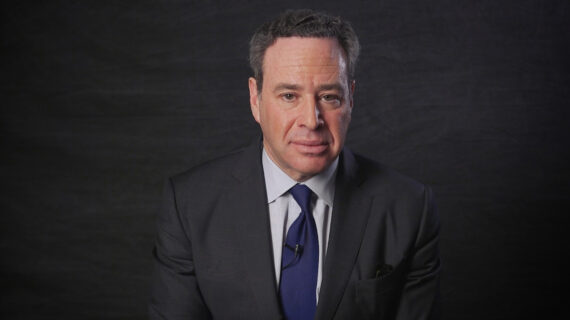Just as Parliament’s recent reminder of the complexities of the Eastern Front and the existence of “literal Nazis” gave Canadians reason to reconsider our casual use of that term in day-to-day debate, perhaps the live-streaming of a 21st century pogrom will make our leaders and our media think twice before blithely tossing around words like “racist” and “hate” to describe merely disapproved beliefs.
As Orwell once said of the word “fascism,” these words have become so devalued by over-use in our political phony-wars that they often seem to have no meaning except to signify “something not desirable.”
Shielded from most of the world’s problems, we have become too comfortable describing minor offences in terms that have truly vile referents in the world beyond our shores. An obvious example this week is the term “decolonization,” which has been eagerly adopted by Canadian governments, universities, elementary schools, libraries, bookstores, and even coffee shops. Most people who implement these policies probably think of “decolonization” as something benign like the inclusion of more representative works and stories from underrepresented—and in Canada especially Indigenous—voices. If that is all it means, and if “representation” doesn’t become an excuse for sacrificing intellectual rigour and aesthetic quality (and it shouldn’t and needn’t), then it is a good thing.
Within this broad majority, however, I would distinguish between those who are earnestly working to bind our society together and tend sensitively to old wounds, and those who go further, embracing the symbols of the revolutionary counter-culture while turning a blind eye to its real-world implications. Among the latter are the sort of people who wear Che Guevara t-shirts to show that they are the “good guys,” not because he took sadistic pleasure in shooting reactionary peasants and boasted that “Hatred is the central element of our struggle! Hatred … so violent that it propels a human being beyond his natural limitations, making him [a] violent and cold- blooded killing machine.” They don’t mean that Che, of course, if they’ve even bothered to learn who he was.
Beyond this majority, there is a smaller group for whom the idea of “decolonization” has a harder edge. They welcome it as a chance to turn the tables on our country’s historically-dominant European majority, not by supplementing our traditional symbols with new ones but by disparaging them as shameful and displacing them. These are the people who saw the burning of churches two summers ago and took pains to explain why the (often Indigenous) congregations had it coming. They are motivated by a retributive impulse that is often indistinguishable from revenge (or in the case of the white progressives who make up much of this class, masochistic self-flagellation). Unfortunately, this group is the movement’s avant-garde. Their energy and ideas drive and direct the policies in practice, while the well-meaning are carried along because they don’t have the words or courage to distinguish their good intentions from this destructive agenda.
But as we learned this week, there is buried within this last group a hardcore faction that would go even further. When they talk about decolonization, they mean it literally, with all its blood-soaked consequences. Symbolic change won’t cut it for them; they want action. They are the ones who read Frantz Fanon’s Damnés de la terre (and Sartre’s revolting introduction) not with the detached pose of most Western progressives but with lurid visions of incarnadine vengeance. They read things like “Violence is a cleansing force. It frees the native from his inferiority complex and from his despair and inaction; it makes him fearless and restores his self-respect” and they don’t just believe it intellectually, they howl for it viscerally, palpably, urgently.

Twitter has exposed them as cheerleaders of rape and infanticide, of “literal racism,” and “literal hate.” Sure, they were tweeting from the safety of their faculty lounges with the security of tenure and they might not be so sanguine about murder when it isn’t mediated through a small screen, but this much was clear: they saw the same images that sickened and revolted normal people and their first reaction was to justify and celebrate them. They rushed into the digital public square to explain that the shooting of young people attending a “peace” concert was an act of “anticolonial resistance,” they denied that settlers were “civilians” (and so off-limits for targeted killing), and they wondered, rhetorically, what everyone thought the words “[p]ostcolonial, anticolonial, and decolonial” meant? It’s a question their colleagues should be thinking hard about today, especially those with “settler” in their bios.
It was a revelatory moment. Perhaps these armchair Amins and tenured Tourés have spent so long insisting that “words are violence” that they can no longer tell the difference between a micro-aggression and a massacre. Perhaps they have spent so much time in a world of relative truths that they can’t bring themselves to accept the objective reality of evil when it bares its fangs. And perhaps we collectively bear some of the blame for this. Our schools, businesses, and governments have ignored or indulged them for so long that they may have believed, with good reason, that there would be no consequences for airing their zealotry this time too. But now that we’ve seen it, we should not forget it. We need to make sure they play no further role in shaping Canadian social policy. They have done far, far too much damage already.




